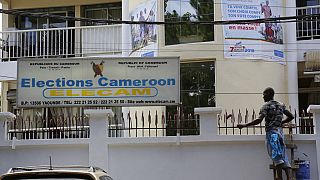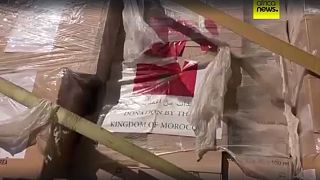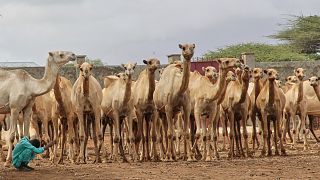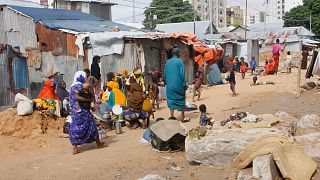Somalia
Camels have long been the backbone of Somalia's pastoralist culture, feeding families, transporting goods and standing tall in local folklore.
But on the dusty outskirts of the capital, the camel now finds itself at the centre of an agricultural revolution that could redefine Somali farming.
The Beder Camel Farm is one of a new generation of camel dairies springing up around Mogadishu.
Dozens of camels saunter around sandy paddocks while others nibble on fresh fodder under the watchful eyes of herders. In a nearby shed, workers carefully milk the animals and collect the frothy yield in sanitized containers.
Demand for camel milk is growing, buoyed by a wave of local entrepreneurs who see untapped potential in a traditional resource.
Somalia is home to over 7 million camels — more than any other country on Earth — but only a fraction of that milk has ever reached urban grocery shelves, according to industry estimates.
At the heart of the shift toward a modern approach to camel milk production is Dr. Abdirisak Mire Hashi, a veterinarian and the farm’s manager.
"According to statistics, Somalia has the largest camel population, based on estimates and studies conducted by international agencies. Somalis take pride in their heritage of raising camels. However, the way camels are raised has changed significantly over time. In the past, families did not fully appreciate the value of camel milk, but today, both camel milk and meat production have been revolutionized and increased. Currently, each camel can produce ten litres of milk per day, compared to only five litres in the past," Mire says.
For Hashi, it's not only about profit — it's about preserving heritage while embracing progress.
Each camel at Beder now produces up to 10 litres (2.6 gallons) of milk daily — double what traditional herders typically yield. The increase is attributed to new investments in veterinary care, better feed, and modern milking practices.
The camels are routinely checked by vets, given nutritional supplements, and grazed on scientifically blended fodder, a far cry from the roaming nomadic herds of decades gone by.
The farm’s biggest leap may be its yogurt factory — the first in Somalia dedicated to processing camel milk into yogurt.
Inside the factory, workers in white coats oversee stainless steel vats as fresh milk is cultured and packed. The final product is sold under the Beder brand which now retails in urban supermarkets across Mogadishu.
Nelson Njoki Githu, a Kenyan-born food engineer overseeing the production line, says camel milk yogurt isn’t just a novelty — it fills an important nutritional gap for local consumers.
Githu explains: "The number one benefit compared to the cow milk, this one normally has sugar levels, the one called lactose, compared to cow milk this one is lower. So people who have lactose intolerance can be able to consume this camel milk without any issue because it's lower. Again vitamins levels compared to this one it is higher on vitamin C, iron, and zinc compared to cow milk. So those are some of the benefits that are there, compared to the other product (cow milk)."
In the supermarkets of Mogadishu, camel milk is popular with customers.
For nutritionist Dr. Yahye Sholle, camel milk yogurt is a public health boost in a country where malnutrition remains a challenge.
Such benefits have helped Beder’s yogurt stand out in Mogadishu’s increasingly competitive dairy market.
Hashi - the farm owner - says the next step is scaling up the business.
He hopes to expand Beder’s network of collection points beyond Mogadishu and plans to train pastoralists in remote areas on modern milking and hygiene practices so that more milk can be safely processed and sold.
The Somali government is encouraging more investment in the industry.
And government support is growing, with the establishment of a Dairy Act and a strategy for livestock sector development.
Back at the paddock, a line of camels stretches into the golden afternoon light, their steady, patient footsteps a reminder that progress in Somalia often moves at the pace of tradition — slow but unstoppable.
From ancient caravans that crossed deserts to supermarket shelves stocked with yogurt, the Somali camel’s journey continues, one cup at a time.











01:06
Low rainfall and cold temperatures raises fears of crop damage among Ivory Coast cocoa farmers
01:04
South Africa reports new bird flu outbreak on poultry farms
02:20
Morocco seeks to preserve traditional cooking and recipes through UNESCO project
Go to video
Record volume and revenue for Ethiopian coffee exports
Go to video
Gaza on the brink as aid ship attacked, fuel and medical supplies dwindle
Go to video
Equatorial Guinea secures investment-grade rating — But for how long {Business Africa}